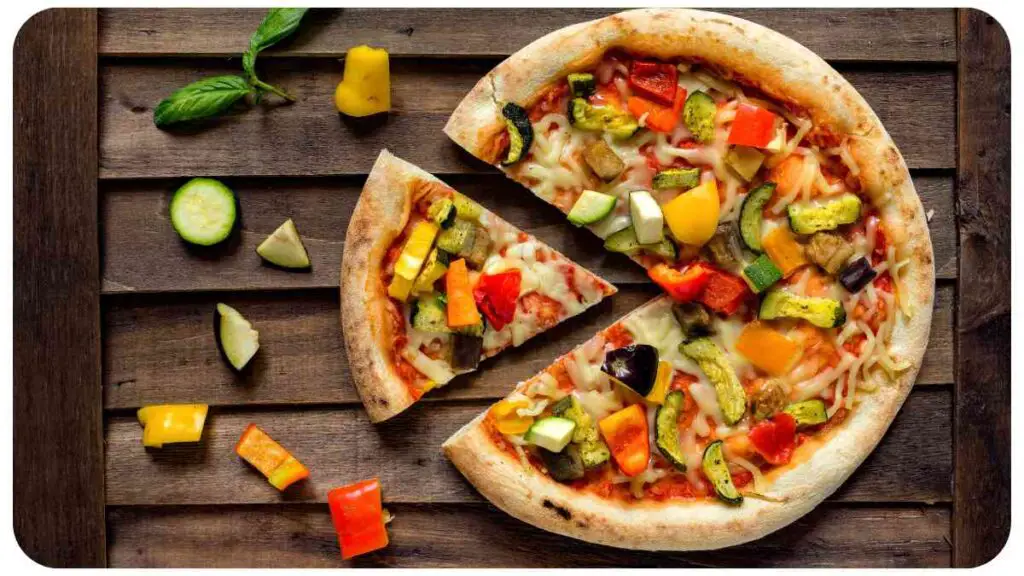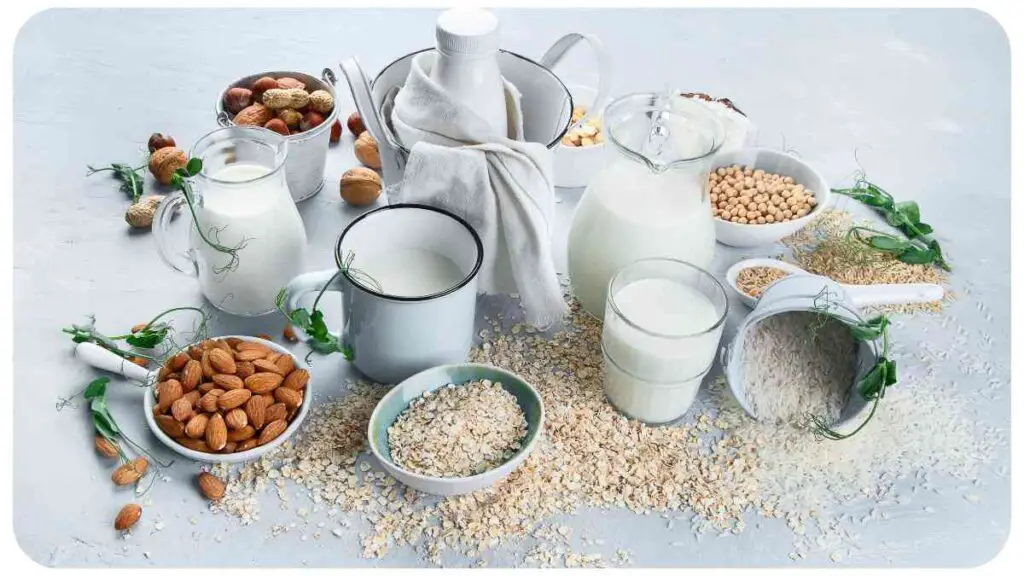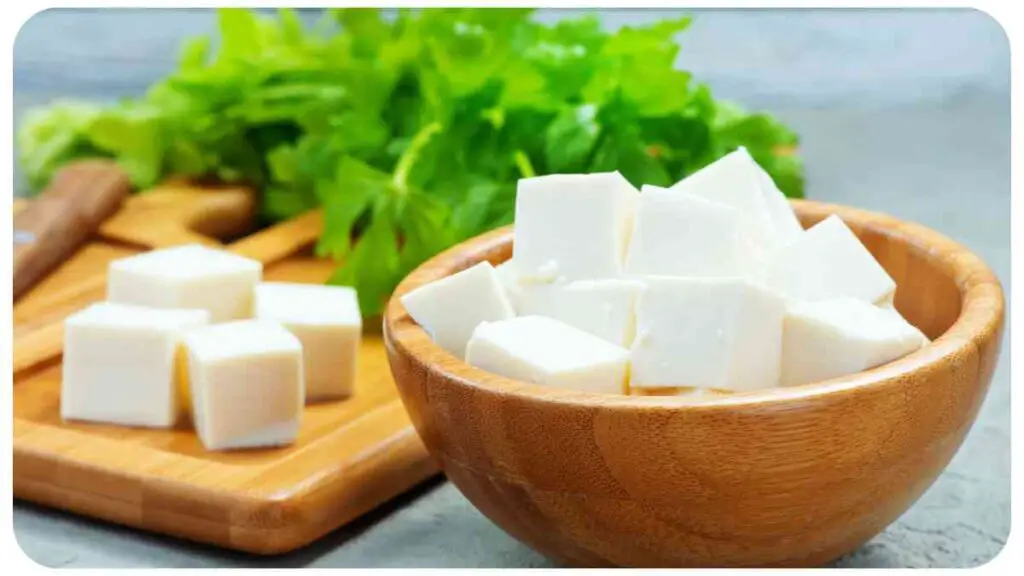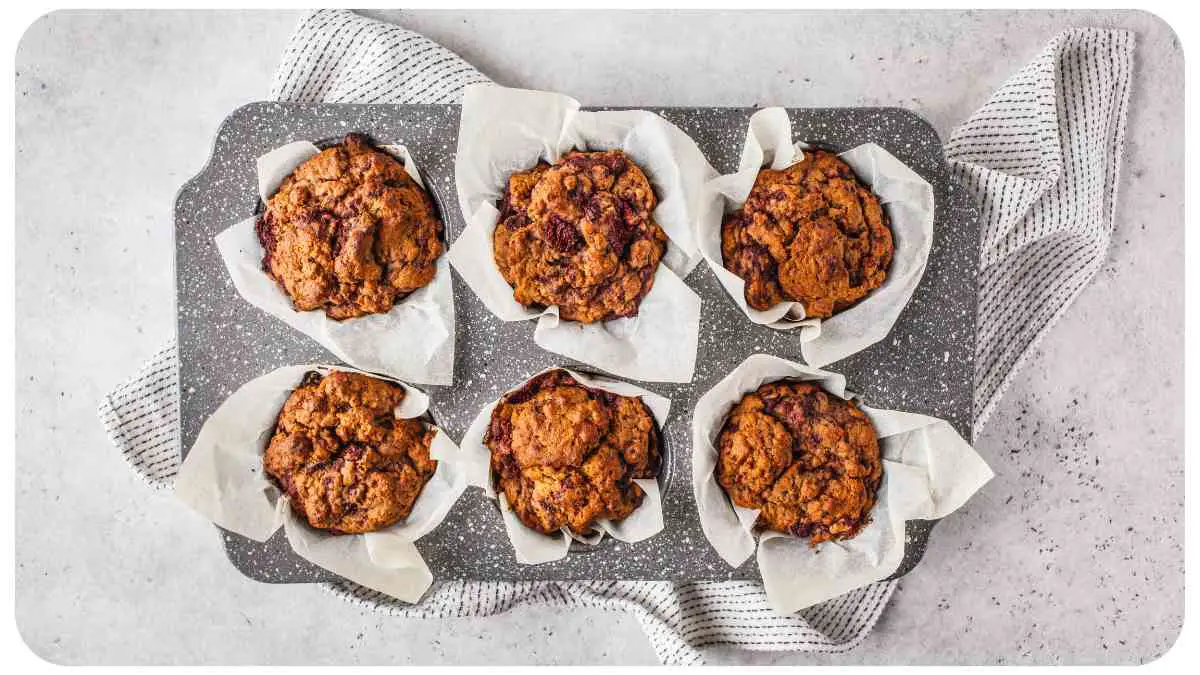In recent years, there has been a significant rise in the popularity of veganism. Many individuals are choosing to adopt a vegan lifestyle for various reasons, including ethical, environmental, and health concerns. One area that has seen significant growth and innovation is vegan baking.
While traditional baking relies heavily on animal-derived ingredients like eggs, butter, and milk, vegan baking requires substitutions to achieve the same taste and texture.
This comprehensive guide will take you through various vegan baking substitutes, providing you with the knowledge and resources to create delicious vegan treats. Whether you’re a seasoned vegan baker or just starting out, this guide will equip you with the necessary information to successfully replace animal-based ingredients in your favorite recipes.
| Takeaways from Vegan Baking Substitutes |
|---|
| 1. Experiment and tweak recipes to suit your preferences. |
| 2. Coconut oil is a great substitute for butter, while vegan margarine can provide a buttery taste. |
| 3. Mashed banana and applesauce can replace eggs in baked goods, while silken tofu works well in denser recipes. |
| 4. Almond milk is versatile, while soy milk adds creaminess to custards and puddings. |
| 5. Natural sweeteners like maple syrup and coconut sugar can replace refined white sugar. |
| 6. Almond flour creates a moist texture, while coconut flour is a gluten-free option. |
| 7. Understand how to work with leavening agents like baking powder and baking soda. |
| 8. Follow recipes closely and adapt them to suit your taste preferences. |
| 9. Avoid common mistakes like overmixing and neglecting to preheat the oven. |
| 10. Learn from successful experiments and take notes for future reference. |
Why Vegan Baking?
Vegan baking offers a multitude of benefits. By using plant-based ingredients, you can reduce your environmental impact and contribute to a more sustainable future. Additionally, vegan baking allows you to accommodate dietary restrictions and preferences, making your treats accessible to a wider audience.
By exploring vegan baking substitutes, you can discover new flavors and experiment with different ingredients, expanding your culinary horizons.
Looking to boost your protein intake? Check out our comprehensive guide on vegan protein sources to find out all the plant-based options available for your vegan baking needs.
Vegan Baking Ingredients: A Quick Overview

Before delving into specific substitutes, let’s briefly explore the main ingredients commonly used in vegan baking.
– Flours:
When it comes to vegan baking, a wide range of flours can be utilized. Popular options include all-purpose flour, whole wheat flour, almond flour, and gluten-free flours like rice flour or oat flour. Each flour type offers different textures and flavors, so experiment to find the perfect fit for your recipes.
– Plant-based Milks:
Instead of dairy milk, vegan baking relies on a variety of plant-based milks, such as almond milk, soy milk, coconut milk, or oat milk. Each milk comes with its own unique taste and consistency, so choose the one that best complements your recipe.
– Sweeteners:
Vegan sweeteners include maple syrup, agave nectar, coconut sugar, and dates, to name a few. These natural alternatives add sweetness to your baked goods while maintaining a vegan-friendly status.
Now let’s delve into specific vegan substitutes for common baking ingredients:
If you’re new to the vegan lifestyle, our article on vegan diet for beginners provides valuable tips and tricks to make your transition smoother when incorporating vegan baking substitutes into your recipes
Egg Substitutes
Eggs play a crucial role in traditional baking, providing structure, moisture, and binding qualities. Fortunately, there are several excellent vegan alternatives that can replace eggs in your recipes.
| Egg Substitute | Quantity for 1 Egg |
| Mashed Banana | 1/4 cup |
| Applesauce | 1/4 cup |
| Silken Tofu | 1/4 cup |
| Flaxseed Meal | 1 tablespoon |
| Chia Seeds | 1 tablespoon |
These substitutes are easy to find and can be adjusted based on the desired texture and flavor. Experiment with different options to achieve the perfect consistency in your vegan baked goods.
Dairy Substitutes
Dairy products like butter, milk, cream, yogurt, and cheese can be easily replaced with vegan alternatives, allowing you to achieve similar taste and texture in your baked goods.
Butter
Butter is a common ingredient in baking, providing moisture and flavor. Fortunately, there are numerous plant-based substitutes available. Here are a few popular options:
| Butter Substitute | Quantity for 1 cup |
| Coconut Oil | 1 cup |
| Vegan Margarine | 1 cup |
| Applesauce | 1/2 cup |
| Nut Butter | 1/2 cup |
| Avocado | 1/2 cup |
Experiment with different alternatives to find the one that best suits your taste and desired results.
Milk

Milk is another staple ingredient in baking, contributing to the texture and moisture of your baked goods. Luckily, a variety of plant-based milks can be used as substitutes. Here are some popular options:
| Milk Substitute | Quantity for 1 cup |
| Almond Milk | 1 cup |
| Soy Milk | 1 cup |
| Oat Milk | 1 cup |
| Coconut Milk | 1 cup |
| Cashew Milk | 1 cup |
Each milk substitute offers different flavors and textures, so feel free to experiment and find what works best for your recipes.
Cream
When a recipe calls for cream, there are several vegan alternatives that can provide similar richness and texture. Some common substitutes include:
| Cream Substitute | Quantity for 1 cup |
| Coconut Cream | 1 cup |
| Cashew Cream | 1 cup |
| Silken Tofu Blended | 1 cup |
| Soy Cream | 1 cup |
| Oat Cream | 1 cup |
These alternatives can enhance the texture and richness of your vegan baked goods.
Yogurt
Yogurt lends moisture and tanginess to recipes, but it can easily be replaced with vegan options. Consider these alternatives:
| Yogurt Substitute | Quantity for 1 cup |
| Coconut Yogurt | 1 cup |
| Soy Yogurt | 1 cup |
| Almond Yogurt | 1 cup |
| Cashew Yogurt | 1 cup |
| Oat Yogurt | 1 cup |
These plant-based yogurts will provide the desired moisture and flavor in your vegan baking creations.
Cheese

Cheese is a beloved ingredient in many baked goods, but thankfully, vegan alternatives have come a long way. There are several vegan cheeses available that melt, stretch, and provide a similar taste.
Explore different options at your local grocery store or make your own plant-based cheese using nuts, nutritional yeast, or tofu as the base.
When exploring vegan baking substitutes, it’s important to know the wide range of vegan protein sources. Understanding the different options available will help you create delicious and nutritious vegan baked goods.
Sweeteners
When it comes to sweetening your vegan treats, there are plenty of natural alternatives to refined sugar. These sweeteners can add flavor and sweetness to your baked goods while keeping them vegan-friendly. Some popular sweeteners include:
| Sweetener | Equivalent for 1 cup of Sugar |
| Maple Syrup | 3/4 cup |
| Agave Nectar | 3/4 cup |
| Coconut Sugar | 3/4 cup |
| Date Paste | 1 cup |
| Stevia | Follow package instructions |
Experiment with different sweeteners to identify your favorites and achieve the desired taste in your vegan baked goods.
Flour and Starch Substitutes
When it comes to flours and starches, there are numerous options available for vegan baking. These alternatives can provide the structure and texture needed for your recipes. Here are some common substitutes:
| Flour/Starch Substitute | Quantity for 1 cup |
| Almond Flour | 1 cup |
| Coconut Flour | 1/4 cup |
| Oat Flour | 1 cup |
| Rice Flour | 1 cup |
| Potato Starch | 1/4 cup |
Feel free to experiment with different flours and starches to achieve the desired consistency and texture in your vegan baked goods.
Leavening Agents
Leavening agents like baking powder and baking soda are essential for achieving a light and fluffy texture in your baked goods. Luckily, these ingredients are already vegan-friendly, so no substitution is needed. However, make sure to check the labels to ensure they don’t contain any additional animal-derived additives.
With these vegan baking substitutes in mind, you’re well-equipped to embark on your plant-based baking journey. Remember, practice makes perfect, so don’t be afraid to experiment and tweak recipes to suit your preferences.
As a professional in the field of vegan baking, I’ve had the opportunity to try various substitutes and discover what works best in different recipes. Let me share some insights and tips based on my own experiences.
- When substituting butter, coconut oil is often a great choice due to its similar consistency and flavor. However, if you’re looking for a buttery taste, vegan margarine can be a better option.
- For egg replacements, mashed banana and applesauce are excellent choices in baked goods like muffins and bread. They not only provide moisture but also add natural sweetness. Silken tofu works well in recipes that require a denser texture, such as cheesecakes.
- In terms of milk substitutes, almond milk is versatile and widely available. It provides a subtle nutty flavor that complements many recipes. However, soy milk is a great option for achieving a creamier texture, particularly in custards and puddings.
- When it comes to sweeteners, maple syrup adds a rich and distinctive flavor to baked goods, while coconut sugar provides a delightful caramel-like taste. Date paste is an excellent choice for adding natural sweetness and moisture to recipes like energy bars and brownies.
- As for flour and starch substitutes, almond flour is fantastic for creating a moist and delicate texture in cakes and cookies. Coconut flour is an ideal gluten-free option, although it does absorb more liquid, so adjustments may be necessary. Rice flour and oat flour work well in combination, imparting a pleasing texture to bread and pancakes.
- In my own vegan baking journey, I’ve found that understanding how to work with leavening agents is crucial. Baking powder is a combination of baking soda, an acid, and a moisture-absorbing ingredient. Use it when recipes call for both rising power and moisture retention. Baking soda, on the other hand, requires an acid ingredient to activate its leavening properties. It’s especially effective in recipes that are acidic, such as those containing citrus juice or vinegar.
By experimenting with these substitutions and understanding how they function in different recipes, you can achieve impressive results in your vegan baking endeavors. Don’t forget to take notes of your successful experiments to reference in the future and to share with fellow bakers.
For those new to veganism, a smooth transition is key. Follow these tips and tricks to make your journey into vegan baking and cooking a seamless and enjoyable experience
Tips for Successful Vegan Baking
- Follow the recipe closely, especially when modifying it for vegan substitutes. Ratios and measurements are crucial for achieving a successful outcome.
- Don’t be afraid to adapt recipes to suit your preferences. Vegan baking allows for creativity and experimentation, so feel free to add your personal touch to favorite recipes.
- Ensure that your vegan substitutes are at room temperature to achieve the desired consistency. Cold ingredients can affect the texture and outcome of your baked goods.
- Incorporate additional flavor elements such as spices, extracts, or citrus zest to enhance the taste of your creations. Vegan baking offers an opportunity to explore bold and unique flavors.
- Allow for extra baking time, as vegan goods sometimes take slightly longer to cook through. Keep an eye on the baking process and use a toothpick or skewer to test for doneness.
Remember, practice makes perfect, and don’t be discouraged if your first attempts don’t turn out as expected. With time, you’ll become more comfortable and confident in your vegan baking skills.
Common Mistakes to Avoid
To help you achieve the best results in your vegan baking endeavors, I want to highlight some common pitfalls that beginners often encounter:
- Overmixing the batter can lead to dense and tough textures. Be gentle when combining ingredients and mix just until they are incorporated.
- Neglecting to preheat your oven can lead to uneven baking or longer baking times. Make sure your oven is properly heated before placing your treats inside.
- Using incompatible substitutes can alter the taste and texture of your recipe. Be mindful of the flavors and consistencies you’re aiming for when selecting substitutes.
- Over-relying on artificial vegan ingredients can compromise the overall taste and healthfulness of your baked goods. Embrace natural, whole-food alternatives whenever possible.
- Neglecting to properly measure ingredients can result in imprecise ratios and affect the final outcome. Use measuring cups and spoons accurately, and level off ingredients for consistency.
By avoiding these common mistakes, you’ll be well on your way to creating delicious vegan baked goods that impress and delight.
In the next section, I will provide some delectable vegan baking recipes for you to explore and enjoy.
The debate about whether honey is vegan or not has been long-standing. Explore the arguments and make an informed decision about using honey as a substitute in your vegan recipes. Learn more at Is Honey Vegan?.
Recipes to Try
Here are some delicious vegan baking recipes for you to try:
Vegan Chocolate Chip Cookies
Ingredients:
- 2 1/4 cups all-purpose flour
- 1 teaspoon baking soda
- 1/2 teaspoon salt
- 1 cup vegan butter or coconut oil, softened
- 3/4 cup brown sugar
- 3/4 cup granulated sugar
- 1/4 cup unsweetened applesauce
- 1 teaspoon vanilla extract
- 1 1/2 cups vegan chocolate chips
Instructions:
- Preheat your oven to 350°F (175°C).
- In a medium bowl, whisk together the flour, baking soda, and salt.
- In a large bowl, cream together the softened vegan butter or coconut oil, brown sugar, and granulated sugar until light and fluffy.
- Add the applesauce and vanilla extract to the sugar mixture and mix until well combined.
- Gradually add the dry ingredients to the wet ingredients and mix until just combined.
- Fold in the vegan chocolate chips.
- Drop rounded tablespoonfuls of dough onto a baking sheet lined with parchment paper.
- Bake for 10-12 minutes or until golden brown around the edges.
- Allow the cookies to cool on the baking sheet for a few minutes, then transfer them to a wire rack to cool completely.
Vegan Banana Bread
Ingredients:
- 2 cups mashed ripe bananas (about 4 medium bananas)
- 1/3 cup melted coconut oil or vegetable oil
- 1/2 cup maple syrup or agave nectar
- 1/4 cup plant-based milk (e.g., almond milk, soy milk)
- 1 teaspoon vanilla extract
- 1 3/4 cups all-purpose flour
- 1 teaspoon baking soda
- 1/2 teaspoon salt
- 1/2 teaspoon ground cinnamon (optional)
Instructions:
- Preheat your oven to 325°F (165°C). Grease a 9×5-inch loaf pan.
- In a large bowl, combine the mashed bananas, melted coconut oil, maple syrup or agave nectar, plant-based milk, and vanilla extract. Mix well.
- Add the flour, baking soda, salt, and ground cinnamon (if using) to the banana mixture. Stir until just combined, making sure not to overmix.
- Pour the batter into the prepared loaf pan and smooth the top.
- Bake for 60-70 minutes, or until a toothpick inserted into the center comes out clean.
- Allow the banana bread to cool in the pan for 10 minutes, then transfer it to a wire rack to cool completely before slicing.
Looking for a creamy and flavorful alternative to dairy cheese in your baking? Check out this step-by-step guide on how to make your own homemade vegan cheese for all your baking needs.
Vegan Blueberry Muffins
Ingredients:
- 2 cups all-purpose flour
- 1/2 cup granulated sugar
- 2 teaspoons baking powder
- 1/2 teaspoon baking soda
- 1/4 teaspoon salt
- 1 cup plant-based milk (e.g., almond milk, soy milk)
- 1/4 cup melted coconut oil or vegetable oil
- 1 teaspoon vanilla extract
- 1 1/2 cups fresh or frozen blueberries
Instructions:
- Preheat your oven to 375°F (190°C). Line a muffin tin with paper liners.
- In a large bowl, whisk together the flour, sugar, baking powder, baking soda, and salt.
- In a separate bowl, whisk together the plant-based milk, melted coconut oil or vegetable oil, and vanilla extract.
- Pour the wet ingredients into the dry ingredients and gently stir until just combined, being careful not to overmix.
- Gently fold in the blueberries.
- Divide the batter evenly among the muffin cups, filling each about 2/3 full.
- Bake for 18-22 minutes, or until a toothpick inserted into the center of a muffin comes out clean.
- Allow the muffins to cool in the tin for a few minutes, then transfer them to a wire rack to cool completely.
Vegan Vanilla Cupcakes
Ingredients:
- 1 1/2 cups all-purpose flour
- 1 teaspoon baking powder
- 1/2 teaspoon baking soda
- 1/4 teaspoon salt
- 3/4 cup granulated sugar
- 1/2 cup plant-based milk (e.g., almond milk, soy milk)
- 1/4 cup melted coconut oil or vegetable oil
- 2 teaspoons vanilla extract
- 1 tablespoon apple cider vinegar
Instructions:
- Preheat your oven to 350°F (175°C). Line a cupcake tin with paper liners.
- In a large bowl, whisk together the flour, baking powder, baking soda, salt, and sugar.
- In a separate
bowl, whisk together the plant-based milk, melted coconut oil or vegetable oil, vanilla extract, and apple cider vinegar.
4. Pour the wet ingredients into the dry ingredients and stir until just combined, being careful not to overmix.
- Divide the batter evenly among the cupcake liners, filling each about 2/3 full.
- Bake for 15-18 minutes, or until a toothpick inserted into the center of a cupcake comes out clean.
- Allow the cupcakes to cool in the tin for a few minutes, then transfer them to a wire rack to cool completely before frosting.
Enjoy these delicious vegan recipes and happy baking!
Understanding the principles of vegan nutrition is essential when substituting ingredients in baking. Discover a comprehensive guide that provides insights into balanced vegan diets and their benefits for baking and overall health.
Further Reading
Here are some helpful resources for more information on vegan baking substitutes:
Guide to Vegan Baking Substitutes: This comprehensive guide provides an overview of common vegan baking substitutions and tips for successfully incorporating them into recipes.
Vegan Baking Substitutes Guide: Food Network offers a handy guide to vegan baking substitutions, explaining how to replace eggs, dairy, and other animal-based ingredients in your favorite recipes.
Vegan Baking Substitutes: Oops Vegan shares a helpful blog post highlighting various vegan baking substitutes, along with recipe recommendations and tips for achieving the best results.
FAQs
Can I use plant-based milk instead of dairy milk in all baking recipes?
Yes, you can generally substitute plant-based milk, such as almond milk or soy milk, for dairy milk in most baking recipes. However, keep in mind that the texture and flavor may vary slightly.
How can I replace eggs in vegan baking?
Eggs can be replaced with ingredients like mashed bananas, applesauce, silken tofu, or flaxseed meal mixed with water. Each substitute has its own unique qualities, so choose the one that best suits your recipe.
What can I use instead of butter in vegan baking?
Vegan butter substitutes, such as coconut oil or vegan margarine, can be used in place of butter. Coconut oil works especially well due to its similar consistency and flavor.
Are there alternatives to using refined white sugar in vegan baking?
Yes, you can use natural sweeteners such as maple syrup, agave nectar, coconut sugar, or date paste in place of refined white sugar. They add unique flavors and natural sweetness to your baked goods.
How can I achieve a fluffy texture in vegan baked goods?
To achieve a fluffy texture, you can use leavening agents like baking powder or baking soda, combined with an acid ingredient like lemon juice or vinegar. The reaction between these ingredients helps to create air pockets, resulting in a lighter texture.
Please note that specific substitution ratios and techniques may vary depending on the recipe, so it’s always a good idea to refer to a reliable source or test substitutions in small batches to find the best results.

Hi! My name is Hellen James, and I’m a vegan lifestyle enthusiast. I’ve been living the vegan lifestyle for over 10 years now, and it’s been one of the best decisions I’ve ever made. The food is amazing, the community is incredible, and there’s no way I could go back after experiencing all this firsthand.


